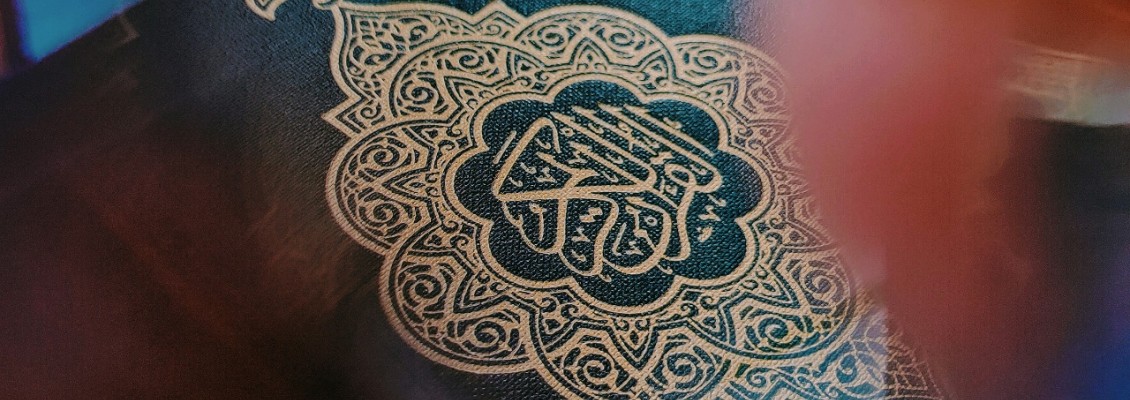
THE QURAN (1)
The Quran is the holy book of Islam, addressed to all humanity. It is the direct revelation of Allah to Prophet Muhammad (pbuh) through angel Gabriel. The Quran is considered the miracle of Allah, given to the Prophet. It is accepted as a miracle in terms of its eloquence in its literary style, the fact that it cannot be imitated, its content, its consistency and coherence and its impact on people. In this article, we will look into its miraculous nature as a literary text and its gradual revelation.
The Quran is meticulously organised into 114 chapters known as surahs, which vary significantly in length. The chapters are composed of verses called ayahs, totalling 6,236 in the entire Quran. Each surah has a specific name, usually derived from a significant word or theme within it, and they are categorised as either Meccan or Medinan, based on whether the verses were revealed before or after the Prophet’s migration to Medina. The Meccan surahs tend to focus on spiritual and existential themes, while the Medinan surahs are more concerned with social laws and community regulations.
Allah sent different miracles to various societies challenging the prevailing cultural values. For instance, Arap society, in which The Quran is revealed, regarded poetry highly which is why the Quran was sent as a miracle. The Quran is written in Classical Arabic, and its literary style is considered unparalleled in terms of its eloquence, rhythm, and depth. The text combines prose and poetry in a unique manner, employing a wide array of rhetorical devices, such as metaphor, simile, and alliteration, which contribute to its aesthetic and emotional impact. This stylistic complexity makes the Quran both a challenging and rewarding text to study. The language of the Quran is also known for its rich and nuanced vocabulary. Many Arabic words used in the Quran have multiple meanings, allowing for various interpretations and layers of understanding.
The Quran encompasses a wide range of themes, addressing theological, moral, legal, and social issues. The stories of the previous prophets before the Prophet Muhammad are prevalent in the Quran as an example, warning and reminder to all people. Central to its message is the concept of Tawhid, the oneness of God, which establishes the foundation of Islamic monotheism. The Quran repeatedly emphasises that God is the sole creator, sustainer, and judge of the universe, and it calls on humanity to worship and obey Him alone. It also outlines ethical principles and moral values, encouraging virtues such as honesty, patience, and compassion, while condemning vices such as dishonesty, arrogance, and injustice. It also provides detailed legal instructions on matters such as marriage, inheritance, and criminal justice, forming the basis of Islamic law (Sharia). In addition to these, The Quran addresses eschatological themes, offering vivid descriptions of the afterlife, including paradise and hell. It calls on individuals to reflect on the transient nature of worldly life and to prepare for the eternal life to come by living righteously and following God's commandments.
The unique literary style and content of the Quran is so unparalleled that Allah challenged those who claimed that it was not the Word of Allah. “Were all mankind to come together and wish to produce the like of the Qur’an, they would never succeed, however much they aided each other”. [The Quran 17:88] The initial challenge of Allah was not met by the unbelievers at that time. So, Allah reduced the scope of the challenge saying, “Or do they say, “He (the Prophet) has fabricated this ˹Quran˺!”? Say, ˹O Prophet, ˺ “Produce ten fabricated sûrahs like it and seek help from whoever you can—other than Allah—if what you say is true!” [The Quran 11:13] Failing to take of the challenge, Allah furthers reduced the scope of challenge to just one surah “And if you are in doubt about what We have revealed to Our servant,1 then produce a sûrah like it and call your helpers other than Allah, if what you say is true.” [The Quran 2:23]
The Quran was revealed in a span of approximately 23 years, beginning in 610 CE and concluding in 632 CE. The fact that it was not sent to people immediately and in a single piece is one of the unique aspects of it. The Quran is considered the final revelation from Allah, intended to address the enduring needs of humanity. It encompasses guidance on various aspects of human life, including social, moral, legal, and spiritual dimensions. The gradual revelation allowed the Quran to address the evolving needs and circumstances of the early Muslim community over time. As the community grew and encountered new challenges, the revelations provided timely and relevant guidance. The gradual nature of its revelation allowed Muslims to develop a deeper understanding and connection with its teachings.
In conclusion, the Quran stands as the centre of Islamic faith, providing comprehensive guidance for all aspects of life through its divine revelations to Prophet Muhammad (peace be upon him). Its unique literary style, profound content, and inimitable eloquence highlights its miraculous nature and divine origin. The Quran’s gradual revelation over 23 years ensured that it remained relevant and adaptable to the developing circumstances of the early Muslim community, fostering a deep and lasting connection with its teachings. The Quran’s enduring impact on individuals and societies, coupled with its unmatched linguistic and rhetorical brilliance, continues to inspire and guide millions of believers worldwide, affirming its status as the eternal and unchallenged word of Allah.

Leave a Comment